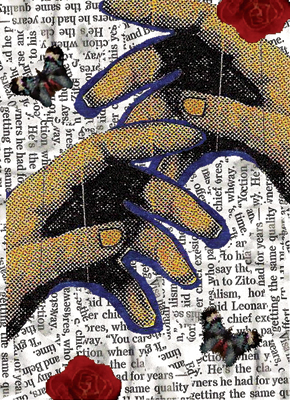All Nonfiction
- Bullying
- Books
- Academic
- Author Interviews
- Celebrity interviews
- College Articles
- College Essays
- Educator of the Year
- Heroes
- Interviews
- Memoir
- Personal Experience
- Sports
- Travel & Culture
All Opinions
- Bullying
- Current Events / Politics
- Discrimination
- Drugs / Alcohol / Smoking
- Entertainment / Celebrities
- Environment
- Love / Relationships
- Movies / Music / TV
- Pop Culture / Trends
- School / College
- Social Issues / Civics
- Spirituality / Religion
- Sports / Hobbies
All Hot Topics
- Bullying
- Community Service
- Environment
- Health
- Letters to the Editor
- Pride & Prejudice
- What Matters
- Back
Summer Guide
- Program Links
- Program Reviews
- Back
College Guide
- College Links
- College Reviews
- College Essays
- College Articles
- Back
Resolute
At the tender age of five, I was on the cusp of entering into the school system. Like a diver perched on the edge of a board, I was filled with anticipation, excitement, and anxiety. I rushed my mother through the enrollment papers for kindergarten. She found herself saddled with an extra piece of paper, one that the other parents hadn’t received. It was a notice saying that I needed to show my proficiency in English before entering public school, in the form of an exam. The test was meant to assess whether I would be an English learner during my years shuffling through the public school system. It confused me, as well as my mom. She questioned the notice, and the clerk explained. Then, the clerk asked my mom if I was proficient in English. My mother asked me the same question in turn, in front of the school official, in her inexorably accented English. Her voice was part defiant—as if the question were ridiculous— and part astonished that my English proficiency, and the inevitably subsequent Americanism, weren’t as plainly visible as my face. Mom asked me the question: “Do you understand and speak English?” The question was simple, but I could sense and understand the implication. She was asking me, “Are you American? Are you sure enough to assert it before this witness?”
I found it almost paradoxical that the school was trying to force me to prove my fluency in English. My parents found it ironic as well because English was the only language I could speak. My skills in Bengali, my parents’ mother tongue, were severely limited. I knew two Bengali words, if that. Over the course of the week following registration, my mother watched my apprehension build as the date for my English proficiency exam neared. She was insistent that I don’t study, as a testament to my equality with all other Americans. Her confidence in my ability to pass the test was unflappable and almost frightening.
On the day of the exam, I arrived at the testing center twenty minutes before my proctor. My mother blamed this on xenophobia. She thought that all these obstacles (my proctor’s tardiness and the exam itself chief among these hindrances) were intended to prevent immigrants from advancing in American society. I found her attitude too disparaging, but I agreed on some level. Nobody else was forced to prove their proficiency in English; there was no swarm of children waiting for the proctor. I was alone in a state of uncertainty.
When I did take the exam, I found the questions derisorily simple. After the fifth question, it became clear that I didn’t need to try. Still, my examiner was deeply suspicious and expectant of my failure until I had answered the last oral question. She tersely said, “You’ll receive your results in the mail next week.” She went into the backroom; I left the building altogether.
By time I had started my second month of kindergarten, I found my English abilities far beyond that of my peers. My mother was overly proud of this, but I understood why. In my mother’s eyes, I had overcome my immigrant struggle, the one barrier every immigrant, regardless of generation, must overcome to reach success. I had proven myself somehow more American than my classmates, as if such a quality could be quantified.
In retrospect, I see that my mother deserved more sympathy than I gave her. Her struggles were monumental, as she dealt with racism and xenophobia in her efforts to earn success. My struggles were perhaps less intense, but the same forces were there, pushing against me. I constantly find myself at odds with these forces, but I appreciate the strength they have given me. On that day in the registration office, I had answered my mother’s question before the clerk. I had replied, “Yes. I am American,” based on what my parents had reassured me of throughout childhood. In hindsight, I am confident that I would answer that question in exactly the same way if posed to me now. The key difference would lie in my reasoning: the foundation of my answer would now be the resolute confidence I have earned through my ongoing struggles. Despite the lashes of discrimination, I can still attest, perhaps more unquestionably than before, that yes, I am American.

Similar Articles
JOIN THE DISCUSSION
This article has 0 comments.
